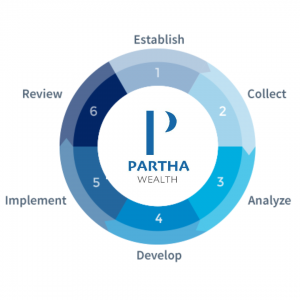Portfolio diversification involves prudent planning to achieve financial freedom for holistic wellbeing. It involves analysing the existing financial status and assessing the risk appetite of the client and provide customized support and direction to achieve financial goals.
Portfolio Diversification
-
-
-
-
-
-
-
-
-
-
- Know the current investment portfolio
- Periodic portfolio re-balancing
- Asset allocation for risk-adjusted return
- Adequate insurance cover for family
- Plan for a peaceful retirement life
-
-
-
-
-
-
-
-
-
Investment Avenues
Savings are invested in financial and non-financial assets. In India all along, non-financial assets comprising physical gold and real estate are still major chunk of individual assets.
Over the recent years, gradual shift is happening towards financial assets which opens up various investment avenues for risk adjusted return.
Public Provident Fund
PPF is one of the most popular savings due to tax benefits – it comes under the EEE (exempt-exempt-exempt) tax status, that is, at the time of investment, for the interest earned and when proceeds are received at maturity are all tax-exempt. One can invest up to Rs 1.5 lakh in a financial year for a period of 15 years and at the end of it, tenure can be extended by another 5 years.
Direct Equity
Investing in direct equity stocks are more volatile. Over long periods, equity as an asset class, has delivered higher than inflation-adjusted returns compared to all other investment avenues. Maintaining demat account is compulsory. The better way to reap benefits of risk-return trade-off is to invest through equity oriented mutual fund schemes.
Mutual Funds
A mutual fund is a professionally managed investment vehicle. These are pooled funds from different investors to deploy it in stocks, bonds and/or other securities. By investing in mutual funds, investors benefit from diversified portfolio within the set scheme objective. It is regulated by SEBI. It is possible to make lumpsum investments and/or systematically (SIP).
Gold Investment
Investment in gold can be made in various forms which include physical gold in the form of jewellery or coins, Gold Fund, Gold ETFs and SGBs.
Capital Gain Bonds
A person can avail exemption from long-term capital gains on the sale of long term capital asset (excluding equity shares and securities). The capital gain amount should be invested in Capital Gain Bonds under section 54EC. The maximum limit for investing in 54EC bonds is Rs. 50 lakhs. The eligible bonds under Section 54EC are REC, PFC, NHAI and IRFC. Interest on 54EC bonds are taxable.
Company Fixed Deposits (FDs)
Company Fixed Deposits offer interest rates which are comparatively higher than Bank FDs. At the same time, investor should consider high rated companies only.
Pradhan Mantri Vaya Vandana Yojana
PMVVY is a Pension Scheme of the Government for the senior citizens aged 60 years and above. On survival of the pensioner to the end of the policy term of 10 years, purchase price along with final pension instalment shall be payable. The scheme is exempted from GST. Investment limit is Rs. 15 lakh per senior citizen. The interest earned in PMVVY is taxable. The ceiling of maximum pension is for a family as a whole, the family will comprise of pensioner, his/her spouse and dependants. LIC of India manages this scheme.
Senior Citizens Savings Scheme
SCSS is government savings instrument for Indian residents aged over 60 years. The maturity is after 5 years from the date of account opening. The maximum SCSS limit deposit is Rs. 15 lakhs. The employees who have attained 55 years but are less than 60 years old are also eligible to apply for the Senior Citizens Savings Scheme provided they have retired under applicable superannuation or VRS rules, provided it is invested within 1 month of receiving retirement amount. SCSS investments qualify for income tax deduction benefit up to Rs. 1.5 lakhs under Section 80C of the Income Tax Act, 1961. Interest on SCSS is fully taxable. TDS is applicable, when interest amount is more than Rs. 50000 in a financial year.
National Pension System
Investors in the age group of 18 to 65 can invest in NPS. It can be extended up to the age of 70 after it is opened. The money is managed in debt and equity instruments as per the discretion of the investor. On maturity, 40% of the corpus has to be compulsorily used to purchase an annuity.

